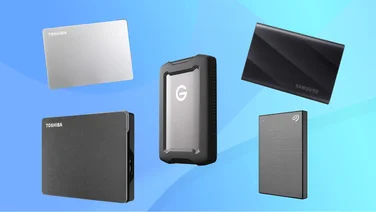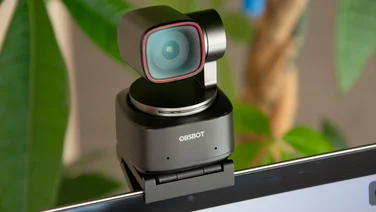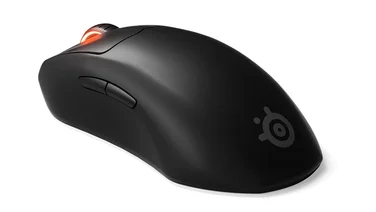To help us provide you with free impartial advice, we may earn a commission if you buy through links on our site. Learn more

- Blissfully cheap
- Impressive read and write speeds
- Low TBW rating
Now that NVMe drives are so affordable, the humble 2.5in SATA SSD can look a lot less appealing. Why bother with something thats effectively speed-limited to less than 600MB/s, yet doesnt cost much less than a slimmer, faster M.2 SSD?
Crucial BX500 review: Features and design
However, there are still more than a few different answers to this. First and foremost is that M.2 has only become standard on very recent PC motherboards and laptops, so if youre looking to upgrade the storage of an older desktop computer, you likely wont have any way of even connecting an NVMe drive in the first place. Alternatively, you might have used your sole M.2 slot for your main drive, and merely want to add some extra capacity while avoiding the slowness of mechanical hard disks. Whats more, if you genuinely cant afford a few extra pounds, its true that SATA SSDs remain cheaper than the vast majority of NVMe SSDs.
All that said, if you are going to buy a budget SATA SSD, relatively recent models like the Crucial BX500 might not logically appeal. Surely, as the SATA platforms throughput limit means new drives wont necessarily be faster than old ones, it makes more sense to get a higher-end but older model thats dropped in price?
Not all NAND is created equal, however, and even if an SSD promises to max out the speed limits of what SATA can allow, it might fall far short of those speeds in more demanding transfer jobs, so there are still opportunities for new drives to impress on performance, even in the entry-level arena. The BX500 happens to have a good pedigree, too: it follows the MX500 and MX300, both 2.5in SSDs that managed to balance good speeds and low prices.
The new BX500, happily, is even cheaper. The 120GB model works out at 17p per gigabyte, while the 240GB model (which we tested) costs just 12p per gigabyte. The 480GB model is even more tempting, at just 10.5p per gigabyte, while the 960GB, 1TB and 2TB models are only 10.1p, 11.2p and 10.4p respectively.
Crucial claims a maximum sequential read speed of 530MB/s and a maximum sequential write speed of 500MB/s, so despite the pricing its evidently confident in the BX500s ability to keep up with at least mid-range drives. There are a couple of hidden costs, however: first, there are no fancy features, like the MX300s built-in encryption, although for most home users that wont be a big deal.

Somewhat more concerning, at least if youre a heavy PC user, is the BX500s relatively low durability. The 240GB model, for example, is rated at 80TBW, meaning you can expect to write 80TB of data to the drive before it starts developing problems.
That might be fine for casual users, but anyone who works with large media files, or installs and uninstalls a lot of games, would be wise to keep an eye on their backups. The 120GB model is even shorter-lived, being rated at just 40TBW, while the 480GB model is rated at a more reassuring 120TBW.
This is quite clearly a no-frills SSD, then, but when it comes to straightforward speed, the BX500 exceeds expectations for a budget drive. For starters, it blasted through CrystalDiskMarks standard sequential read and write tests, recording 562MB/s and 525MB/s respectively. Thats not just an improvement on the MX300, on both counts, but its a very similar set of results to what youd see on a premium 2.5in SSD such as the £120 Samsung 860 Evo.
Crucial BX500 review: Performance
The BX500 also did moderately well in the tougher 4K test, where it produced a read speed of 248MB/s and a write speed of 221MB/s. While these results arent as high, relatively speaking, as those of the standard sequential test, theyre still pleasantly close to mid-range territory.
For a more true-to-life test, we also ran our own file transfer benchmarks using DiskBench. Starting with the huge files test, the BX500 managed a middling read speed of 441MB/s, but its write speed of 496MB/s was another very encouraging showing. Likewise, its read speed result in the large files test 428MB/s is extremely competitive by SATA standards.
In the large files write speed test, this SSD exhibited the same behaviour as the 860 Evo: it actually writes the files faster than Windows can keep up with, effectively confusing DiskBench into recording a theoretically impossible speed in this case, an average of 601MB/s. The good news is that this still demonstrates very high speeds; we just cant accurately measure exactly how high.
The small files test is the only portion the BX500 struggled with, its read and write speeds dropping to 257MB/s and 301MB/s respectively. Unlike in the huge and large files tests, the old MX300 is actually faster here, scoring a 338MB/s read speed and an excellent 519MB/s write speed.
Even so, the BX500 performed well overall, considering its a budget SSD without any speed-boosting cache trickery. It even came close to the performance-minded Adata XPG SX950U; no small feat when the BX500 is about 13p per gigabyte cheaper than Adatas equivalent 240GB model.
Crucial BX500 review: Verdict
Some PC enthusiasts might look at the TBW limits or small file transfer speeds and scoff, but then the BX500 was never for them. This is a simple yet sufficiently quick entry-level SSD, priced accordingly, which means almost anyone can upgrade from their desktop or laptop hard disk. In the absence of any more serious flaws, thats good enough for a Recommended award.






